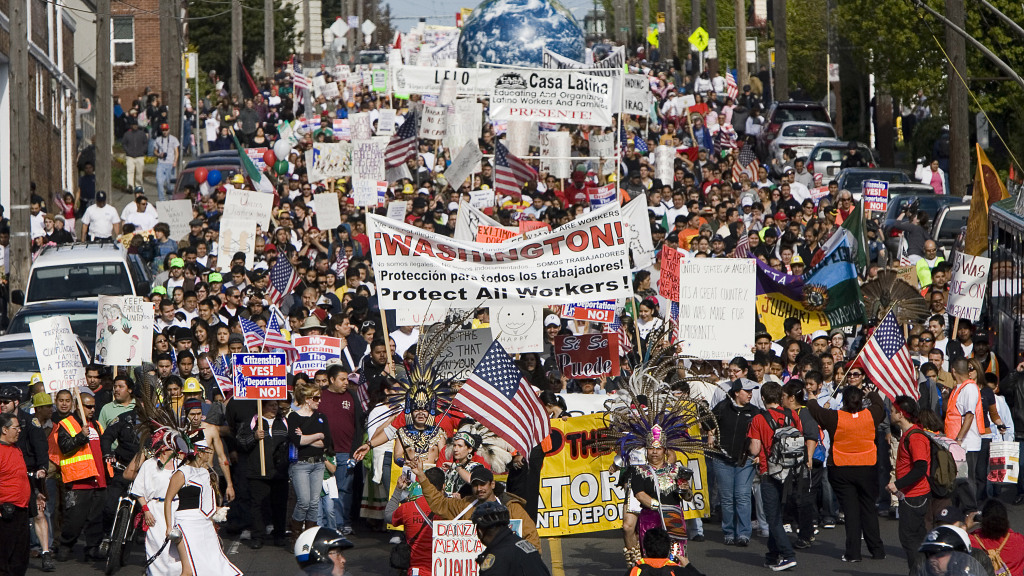
Photo Credit: CBS Seattle at http://seattle.cbslocal.com/2016/04/29/may-day-march-planned-to-support-workers-immigrant-rights/
This Year’s May Day to Expose Immigration Injustices in Wa …
Written by Bianca Chan, 04/30/2018
This Tuesday marks the 19th annual May Day March in Seattle, organized by two local activist groups El Comité and the May 1st Action Coalition. The protest, which is held on International Workers’ Day, is a public manifestation of support for immigrant and workers’ rights. With thousands of people expected to flood the streets of Seattle, marching from Judkins Park to Seattle Centre, this year’s May Day will highlight the state’s indiscriminate immigration enforcement, namely the role of U.S. Immigration and Customs Enforcement (ICE).
“ICE was made after 9/11 to look for terrorists,” said Juan Jose Bocanegra, a member of El Comité. “Now, [they] send armed people to break up families,” he said at a COSI talk on the history of May Day.
A US federal law enforcement agency, ICE is tasked with shipping deportees and illegal immigrants out of the country. Last year, between Jan. 22 and Apr. 29, over 40,000 individuals were arrested on civil immigration charges, as reported on the ICE government website. The press release, published on the website, also quotes ICE Acting Director, Thomas Homan, to have said “ICE continues to execute our mission professionally and in accordance with the law, and our communities will be much safer for it.”
However, most Seattleites protesting on Tuesday will tell you differently.
In fact, ICE is consistently associated with “tearing families apart,” as headlined at the New Yorker and with “toss[ing] men, women, and children into for-profit prisons before sending them back to countries where they have no family,” as written by The Stranger. The agency has been largely criticized by media outlets for its excessive and impulsive deportations.
With families and communities feeling ripped apart, rather than safer, many activist groups are using May Day as a call to action for justice. “We need your help,” Bocanegra said, “we don’t need more Gestapos.”
May Day came to fruition in the 1880s in Chicago as a protest for an eight-hour work day, at a time when a 60-hour work week was common. Since then, it has evolved to encompass immigrant rights, particularly since President Donald Trump signed Executive Orders regarding immigration enforcement priorities. May Day and International Workers’ Day continue to grow in popularity and is celebrated throughout the country, as well as around the world.


